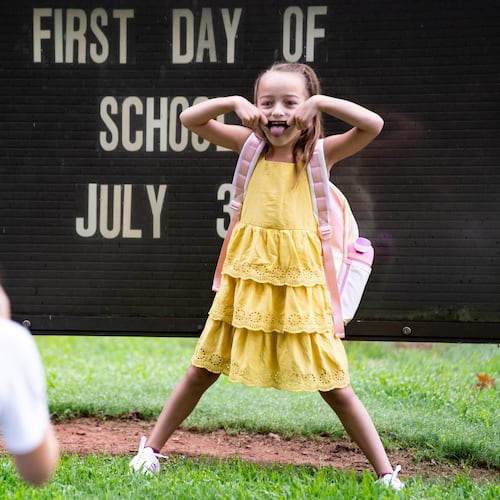Saria Canady is a 2004 graduate of NCCU and a writer trapped in an editor's body. In fact, she is section editor for the Atlanta Journal-Constitution. You can find her trying to master the crane pose while listening to Prince.
I stepped onto the campus of North Carolina Central University in August 2000 as a sheltered 18-year-old freshman from an unincorporated town just outside of Fort Myers, Fla.
“The Sticks,” as I like to call it.
It was my first time roaming so far from home without family supervision. I’d never even spent a week away at camp. So to say campus life was a culture shock is redundant; I probably would have experienced the same level of wonder wandering unsupervised just five miles outside my neighborhood in the Sticks.
Oddly, the biggest surprise came in the form of salutations.
On check-in day, a smiling woman said “hello” to me as she walked by.
I looked around to see who else might she have been greeting, but there was only me. I wondered had we met before and I’d just forgotten her face.
I mean, I didn’t make a habit of greeting random strangers where I came from. These “strangers” showered me with at least 10 more “heys," “hellos” and “how are yous” that day before I began to realize what I would fully come to know over the next four years at NCCU: there, like many historically black colleges and universities, everyone is family.
My mom, Loretta, knew that home-away-from-home feeling first hand. She grew up on a tobacco farm just down the road from Durham, in Rose Hill, N.C.
She and her three sisters attended NCCU in the ’60s and ’70s.
My maternal grandmother, Dorothy, enrolled there in the 1930s, when it was known as North Carolina College for Negroes. And two of my aunts never strayed far from Durham after their NCCU days. This is most certainly the only reason my mother allowed me to attend college out of state.
Each time I introduced myself during freshman orientation, my answer to the ubiquitous question, “where are you from?” always elicited the follow-up, “well, how did you get here?”
It was as though I’d said I was from Mars rather than Florida. What my classmates were really trying to figure out was why I hadn’t chosen to attend Florida A&M or Bethune-Cookman or one of the many other HBCUs I’d passed on the way up I-95.
I was proud to say that I was walking in the footsteps of five other women who’d trod the sloping hills and verdant green of NCCU before me or to share the history of my family whose roots run deeper in the Tar Heel State than those of any palm tree in Florida.
Just like my mom, I majored in English, and I took courses with a couple of the same professors who had taught her nearly 30 years earlier. This legacy is a large part of why I felt I couldn’t have made a better choice for my undergraduate education.
In my first year at NCCU, my tribe grew tenfold. The girls I lived with in Eagleson Hall became sisters.
The boys who loitered every night outside on the stoop at Eagleson became the brothers I never had. (Well, the ones I didn’t flirt with in my newfound freedom).
When they all teased and nicknamed me “Grandma” because of my old soul and elderly habits, I knew I was among true siblings and it was all love — a kind of love I knew well having grown up with four sisters.
I forged life-long bonds with people whose weddings, baby showers, and sadly some funerals I’d attend.
And I became part of a network, a global fraternity of sorts, where there are no strangers.
When I moved to Atlanta four years after graduating from NCCU, I was hundreds of miles from any of my biological relatives, but I knew I wouldn’t have to fly solo for long.
Shortly after the move, I joined the local NCCU alumni chapter (where I now serve as vice president), and even though I had never seen any face in the room before that first meeting, I was surrounded by familiarity.
I knew I had somewhere to turn if I ever needed help with anything, from job placement to furniture moving. No matter our ages, graduation years or backgrounds, we have at least one thing in common: We are all Eagles, bonded by our love for our alma mater.
If my journey takes me beyond Atlanta, the story will be the same anywhere.
Because of NCCU, I’m always home.
About the Author
Keep Reading
The Latest
Featured


